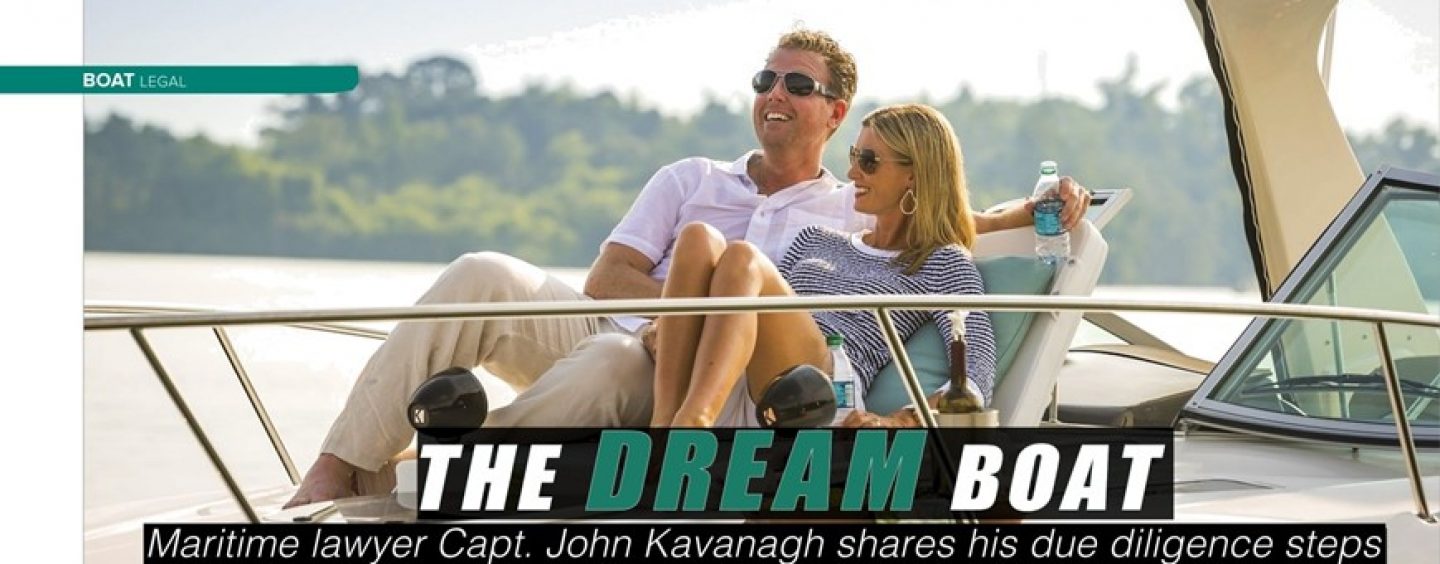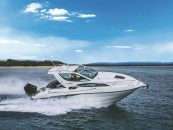You are excited. You have finally found it. The one. The Dream Boat. More than that, your ‘significant other’ is on board with the plan. You are going to leave the humdrum behind and go cruising the world’s most beautiful coastlines. You cannot wait to begin the adventure.
Just a few small problems: the boat of your dreams is in Europe/Caribbean/Southeast Asia/ North America/UK/South America/Antarctica/ aground on a reef. The boat is being offered for sale on a boat owner’s social media group, the price is attractive (is it too good to be true?), there is no broker involved, the seller sends you a contract she has downloaded from the internet, the vessel is flagged in the Caymans and seems to be owned by an Isle of Man company, and the seller has gone home to Canada/New Zealand/ Russia/Saudi Arabia, leaving the boat in the possession of a friend who is living on board.
Where do you start? How do you know who you are dealing with? How do you find out if the seller actually owns the boat? What form of contract do you use? Who holds the deposit? How do you know if there are any loans or liens attached to the boat? How do you re-flag it when you buy it? Or do you leave it Cayman Islands flagged? Where do you take delivery of the boat (in the marina? At sea?) How do you get it back to Australia? Can you use it for chartering to offset the costs? What about tax residency? GST? VAT?
These sensible questions are managed during the purchasing process with a range of due diligence steps. Shortly summarised, the dream purchase may involve:
Due diligence on the seller – Using ‘Know your client’ procedures to properly verify the identity of all persons involved
Due diligence on the vessel – Checking the ship register for registered ownership, liens and mortgages; verifying the vessel’s provenance from builder’s certificate to the current owner
Due diligence on any corporate entities involved – Liaising with the jurisdictions to verify company documents and office holders
Ensuring all parties are authorised (by power of attorney if required) to enter into the contract and do all the things required to sell the boat to you
Technical due diligence – Is the vessel seaworthy and suitable for you to live the dream?
Purchasing structures – Should you own the dream boat personally? Have you considered a company? Or a trust? How do you manage your legal and tax liabilities and protect your significant other if something happens to you?
Flag – Do you keep the current flag or re-flag? What are the considerations? Cost? Convenience? The law that applies?
Relocating the Vessel – Do you intend to use the boat overseas or are you bringing it back to Australia? Will you put it on a ship or sail on its own bottom? Will you be using it commercially or just for private pleasure? Will you import it to Australia and pay GST?
Insurance – What kinds of insurance do you need and how do you get it?
Congratulations! You own the dream boat and may set sail.
Fortunately, at Pacific Maritime Lawyers, we are familiar with answering these questions, and assisting prospective boat owners to navigate these treacherous waters (avoiding the 2-legged sharks to port and the coral reefs of bureaucracy to starboard). We also have relationships with a range of professionals who are experts in their field; accountants and tax advisors, corporate lawyers, customs brokers, and marine surveyors to name a few. With the right crew on board, we can make your dreams come true by managing the risks, conducting the due diligence, and ensuring the dream doesn’t turn into a nightmare.
Capt. John Kavanagh (Principal Lawyer – Master Mariner)
Ph: 0481 170 373 john@pacificmaritimelawyers.com.au
Published in print July-September 2023































